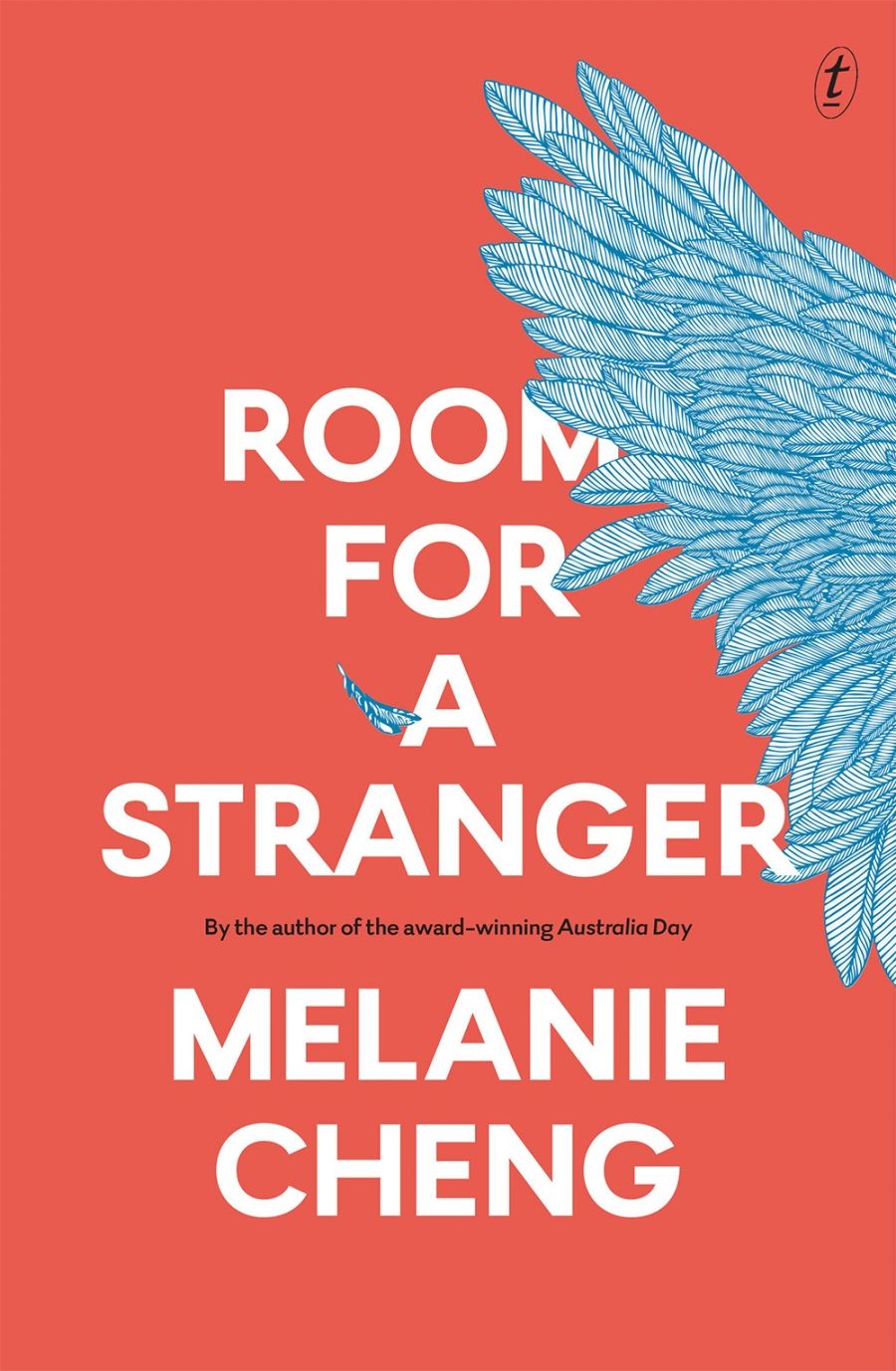
- Free Article: No
- Contents Category: Fiction
- Review Article: Yes
- Online Only: No
- Custom Highlight Text:
What does it mean to live in a place but never to fully belong to it? How does our capacity for intimacy alter when we are in exile? How do we forge an identity among haphazard collisions of cultures and histories? These are the questions that Melanie Cheng ...
- Book 1 Title: Room for a Stranger
- Book 1 Biblio: Text Publishing, $29.99 pb, 288 pp, 9781925773545
Andy and Meg are both lonely and adrift, both trapped in restrictive identities and subject to prejudice and exclusion of different kinds. Each has a fragile sense of self and an innate timidity. As the weeks pass, they form a tentative friendship as their disparate lives brush up against each other in their shared domestic space. Cheng’s style is clear and competent, her sentences elegant and evocative, but ultimately the story that she unfurls is less satisfying than the crystalline contained narratives of her short fiction. In the wider field that the novel allows her, she seems less sure of how to manage her preoccupations, and the taut characterisations that served her so well in her short stories are not as effective here. The narrative is engaging and the engine of the plot drives the reader forward, but there is a sense that the complex joy of the novel, what D.H. Lawrence called ‘the one bright book of life’, is somehow missing.
One of the novel’s difficulties is related to the rendering of Andy. He is at the story’s heart and yet we never gain any clear sense of who he is, of what drives or enlivens him. His fears and desires are never fully articulated. Race is only one element in Andy’s sense of himself as a person apart. Disconnected from his family and ambivalent about his studies, he slides into a distressing malaise. In Australia, he is presumably an attenuated version of his former self, but the glimpses of his life in Hong Kong are so minimal that we don’t absorb any illuminating sense of context.
It may be that this is intentional; that Cheng is attempting to render the quiescence and passivity of a psyche doubly damaged by familial trauma and exile. But the characterisation of Andy drives him away from the reader. He is sketched almost entirely with a sense of pathos rather than with the tenderness and humour of which Cheng is so capable, and his character feels at times frustratingly thin, disfigured as it is by a disconcerting kind of vacancy. ‘You should know I’m not normal,’ Andy says casually to a friend halfway through the novel. For a moment, the story hovers on the precipice of revelation, but then retreats. Elsewhere, Andy wishes that ‘someone would smother the endless chatter of his brain with a big black sheet’. These are tantalising glimpses, but Andy’s state of mind and the suppressed sense of damage that lingers around him needs to be dramatised, not merely stated.
 Melanie Cheng (photograph via Text Publishing)
Melanie Cheng (photograph via Text Publishing)
The character of Meg is far more successfully crafted. Cheng has spoken eloquently in interviews about the ignominies of ageing and her desire to create an expanded empathetic imagination with which to view the plight of the elderly, and she has certainly proven herself admirably adept at rendering older characters. In an earlier novella titled Muse (2016), she delivers the character of Evan; a complex fictional creation who is painfully alive to his own shortcomings and shamed by his failures and transgressions. The ghost of T.S. Eliot’s ‘Gerontion’ hovers behind the pages of Muse, and there is a sense of a fully occupied personhood, one that she also successfully summons in her characterisation of Meg, a gentle introvert who was ‘born shy’ and struggles throughout her life to form meaningful bonds.
Billed as a novel about unlikely connections and improbable friendships, Room for a Stanger seems more deeply preoccupied with disconnection, with the infinite ways that people of all ages and races fail to understand or respond to each other. At one stage in the novel, Meg wonders whether Andy will leave any trace of himself behind when he moves out; ‘Or would his presence be as ghostly as a breeze wafting through the dusty hallway?’ It’s a sentiment that seems to apply to Room for a Stranger as well, which is haunted by the ghost of the absorbing and affecting novel it could have been.


Comments powered by CComment